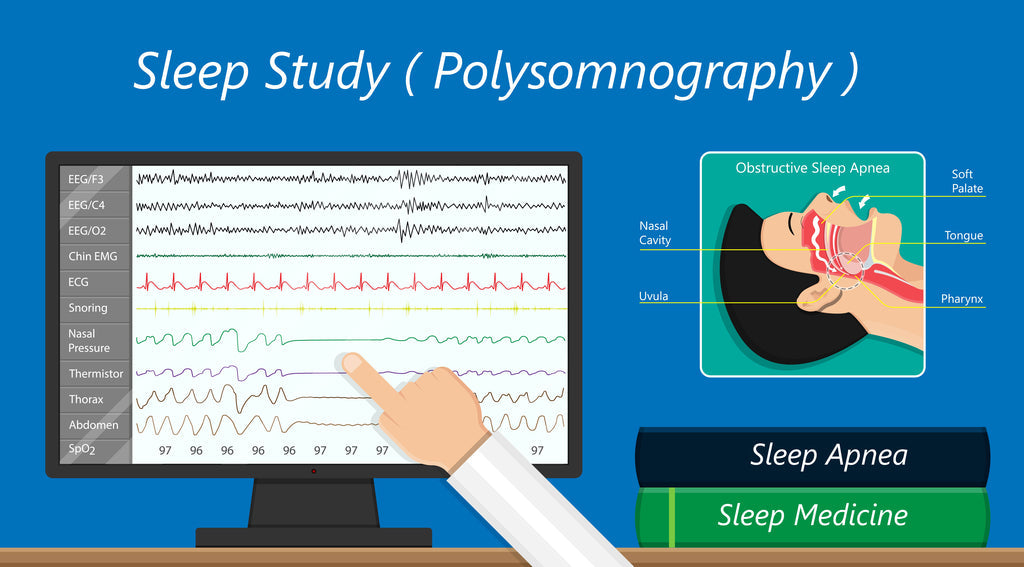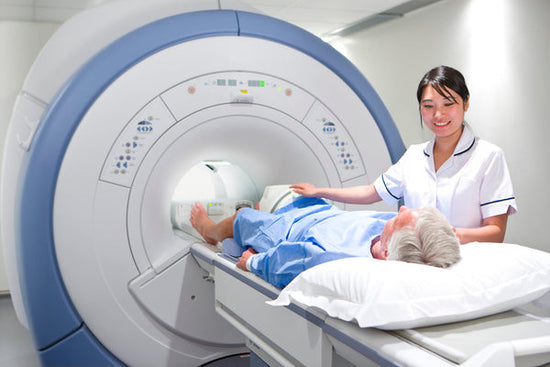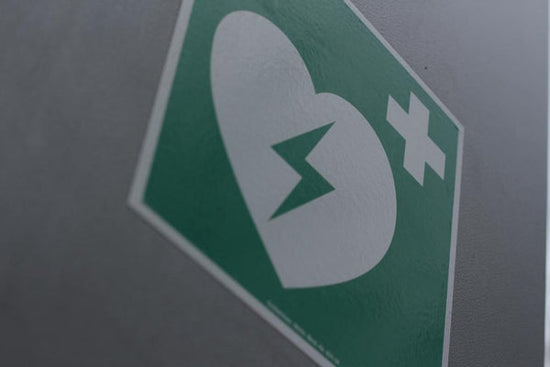Sleep is a fundamental aspect of our lives, affecting our health, mood, and overall well-being. However, many people struggle with sleep disorders that disrupt their nightly rest and, consequently, their daily lives. Two such disorders are snoring and sleep apnea. To accurately diagnose these conditions, doctors often recommend a sleep study. This article aims to provide a comprehensive understanding of sleep studies, focusing on their role in diagnosing snoring and sleep apnea.
What is a Sleep Study?
A sleep study, also known as polysomnography, is a non-invasive, overnight exam that allows doctors to monitor a patient while they sleep. The study is conducted in a special clinic designed to mimic a comfortable sleeping environment. During the study, various bodily functions such as breathing, heart rate, and oxygen levels are measured and recorded. This data provides valuable insights into the patient's sleep patterns and potential disruptions. (1)
Why is a Sleep Study Necessary?
Sleep studies are crucial in diagnosing sleep disorders, including snoring and sleep apnea. Snoring is more than just a nighttime nuisance; it can be a sign of a serious health condition. Sleep apnea, however, is a potentially dangerous sleep disorder that causes breathing to stop and start repeatedly during sleep. If left untreated, both conditions can lead to severe health complications, making accurate diagnosis and treatment essential. (2)

The Impact of Sleep Deficiency
Sleep deficiency significantly impacts your ability to function during the day. If you haven't slept enough, you may have trouble making decisions, solving problems, controlling your emotions and behavior, and coping with change. Sleep deficiency is also linked to depression, suicide, and risk-taking behavior. (3)
Understanding Snoring and Sleep Apnea
Before delving into the specifics of a sleep study, it's important to understand what snoring and sleep apnea are. Snoring occurs when air cannot move freely through your nose and throat during sleep, causing the surrounding tissues to vibrate and produce the familiar snoring sound. Sleep apnea, specifically obstructive sleep apnea, is a more serious condition where the throat muscles intermittently relax and block the airway during sleep. This can lead to snoring, choking sounds, or periods of silence followed by gasps for air. (4)
The Sleep Study Process
The process of a sleep study involves several steps. Upon arrival at the sleep clinic, a technician will guide you to a private bedroom and attach sensors to your body. These sensors are connected to machines that record your brain activity, eye movements, heart rate, blood pressure, oxygen levels, and breathing patterns. The study is painless and simply involves sleeping as you normally would. The sensors are removed in the morning, and you can go about your day as usual. A sleep specialist then analyzes the data collected to diagnose any sleep disorders. (5)
Interpreting Sleep Study Results
After the sleep study, a sleep specialist will review the recorded data to identify any abnormalities in your sleep patterns. They will look for signs of snoring, periods of stopped breathing, and sudden awakenings, which are all indicative of sleep apnea. The sleep study results will provide a clear picture of your sleep health and guide the doctor in recommending the most effective treatment plan. (6)
Treatment Options for Snoring and Sleep Apnea
Depending on the sleep study results, your doctor may recommend various treatment options. For mild snoring or sleep apnea, lifestyle changes such as losing weight, quitting smoking, or avoiding alcohol before bed may be suggested. Therapies such as continuous positive airway pressure (CPAP) or oral appliances designed to keep the airway open may be recommended for more severe cases. In some cases, surgery may be considered. (7)
The Importance of Diagnosing Sleep Disorders
Sleep disorders like snoring and sleep apnea are more than just inconveniences. They can seriously affect a person's health and quality of life. Snoring, for instance, can lead to fragmented, unrefreshing sleep, while sleep apnea can result in a range of complications, from daytime fatigue to heart problems. Therefore, it's crucial to diagnose and treat these conditions promptly. (8)

The Role of Sleep Clinics
Sleep clinics play a vital role in diagnosing sleep disorders. These specialized medical facilities are equipped with the necessary technology and staffed by trained professionals who can accurately diagnose and treat a wide range of sleep disorders. The environment in a sleep clinic is designed to be comfortable and relaxing to facilitate natural sleep. (9)
The Patient Experience During a Sleep Study
Undergoing a sleep study is a unique experience. Despite the unfamiliar environment and the various sensors attached to your body, the aim is to mimic your regular sleep routine as closely as possible. You'll be encouraged to bring items from home, such as pajamas and a favorite pillow, to help make the environment feel more familiar. The sleep technicians strive to create a calm, quiet environment to help you fall asleep naturally.
The Value of Personalized Treatment Plans
Once a diagnosis has been made, your doctor will work with you to develop a personalized treatment plan. This plan will take into account your specific symptoms, the severity of your condition, your lifestyle, and any other health conditions you may have. Treatment options can range from lifestyle modifications and the use of special devices to medications and surgery.
The Impact of Treatment on Quality of Life
Treatment for sleep disorders can significantly improve your quality of life. It can help alleviate symptoms, improve sleep quality, increase daytime energy levels, and reduce your risk of health complications. Many patients report feeling more alert, more energetic, and overall healthier after receiving treatment for their sleep disorder.
Conclusion
In conclusion, sleep studies are an invaluable tool in the fight against sleep disorders like snoring and sleep apnea. They provide a detailed understanding of a person's sleep patterns, enabling doctors to make accurate diagnoses and devise effective treatment plans. If you're struggling with sleep issues, don't hesitate to seek help. A good night's sleep is not only a cornerstone of good health but also within your reach.
FAQ
What can be diagnosed with a sleep study?
A sleep study, also known as polysomnography, can diagnose or evaluate various sleep disorders such as sleep apnea, insomnia, narcolepsy, restless legs syndrome (RLS), periodic limb movement disorder (PLMD), REM sleep behavior disorder (RBD), and parasomnias. It provides insights into sleep quality, breathing patterns, movements, and physiological parameters during sleep. Consulting with a healthcare professional is crucial for accurate interpretation and appropriate treatment recommendations.
How many hours is a sleep study?
A sleep study typically lasts for a full night, lasting approximately 7-8 hours.
What should you not do before a sleep study?
Before a sleep study, avoid caffeine and stimulants, limit alcohol and sedatives, minimize daytime napping, avoid heavy meals, reduce electronic device usage, avoid excessive hair products or oils, and follow sleep center instructions.
Do they watch you sleep during a sleep study?
Yes, during a sleep study, you will be monitored by sleep technologists or healthcare professionals while you sleep. They will observe you through video monitoring and also monitor various physiological parameters using sensors and electrodes attached to your body. These sensors and electrodes record brain activity, eye movements, muscle activity, heart rate, breathing patterns, oxygen levels, and other relevant data. The monitoring allows the sleep specialists to analyze your sleep patterns, identify any abnormalities or sleep disorders, and make an accurate diagnosis. The presence of the sleep technologists ensures that the study is conducted safely and that any potential issues or concerns during the night can be addressed promptly.
How long after sleep study do you get results?
The time it takes to receive the results of a sleep study can vary depending on the sleep center or healthcare facility where the study was conducted. In general, it may take a few days to a couple of weeks to receive the final results. After the sleep study, the recorded data needs to be analyzed and interpreted by sleep specialists or physicians. They will review the findings, assess your sleep patterns, and make a diagnosis if necessary. The results are typically communicated to you during a follow-up appointment or consultation with your healthcare provider. It is best to inquire about the estimated timeframe for receiving the results from the specific sleep center or healthcare facility where you had the sleep study done.
References
- https://www.nhlbi.nih.gov/health/sleep-studies
- https://www.osfhealthcare.org/blog/what-is-a-sleep-study-and-why-is-it-needed/
- https://www.nhlbi.nih.gov/health/sleep-deprivation
- https://www.nhlbi.nih.gov/health/sleep-apnea
- https://www.mayoclinic.org/tests-procedures/polysomnography/about/pac-20394877
- https://my.clevelandclinic.org/health/articles/11429-common-sleep-disorders
- https://www.ncbi.nlm.nih.gov/pmc/articles/PMC539538/
- https://www.ncbi.nlm.nih.gov/pmc/articles/PMC3181779/
- https://www.ncbi.nlm.nih.gov/pmc/articles/PMC4031414/





